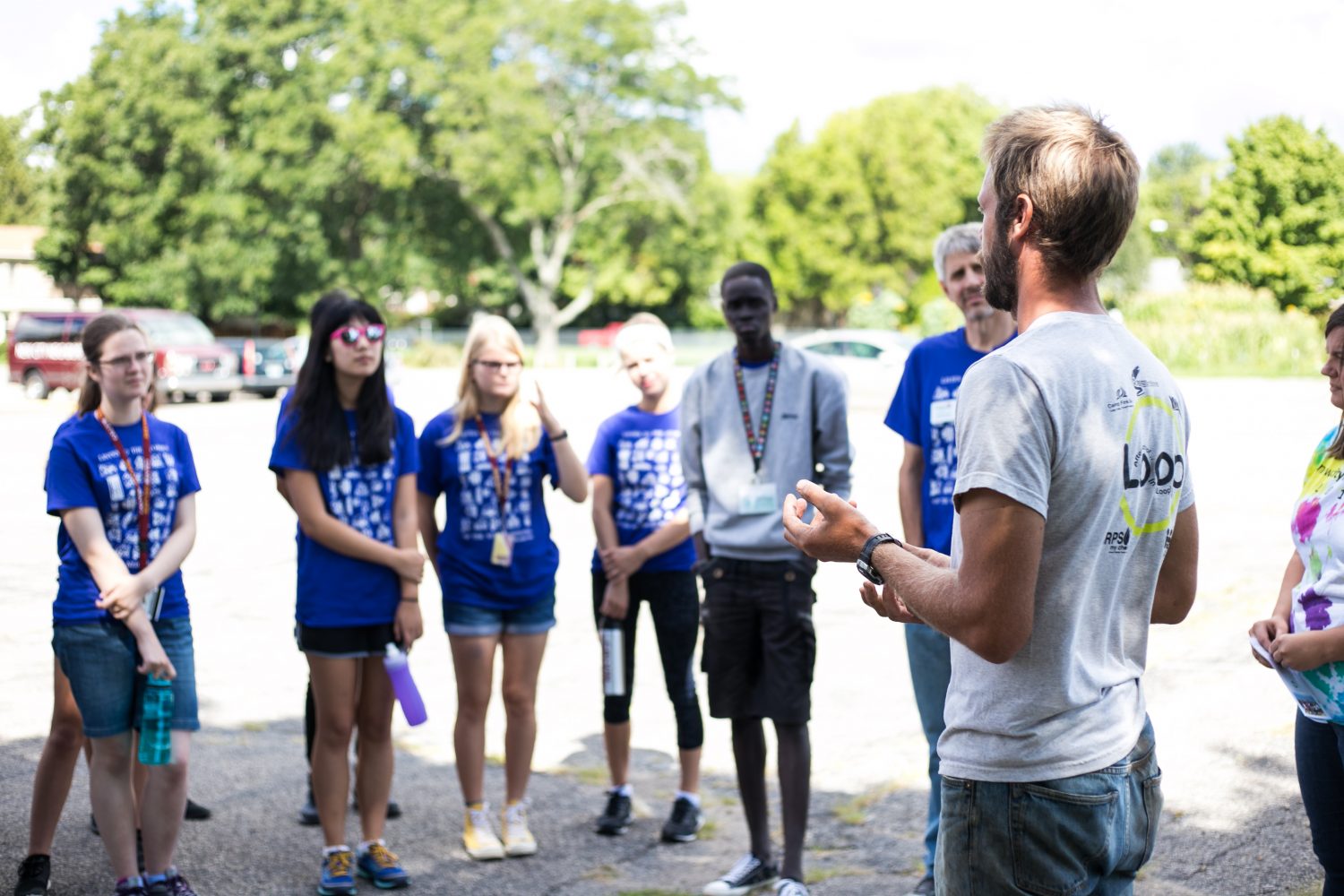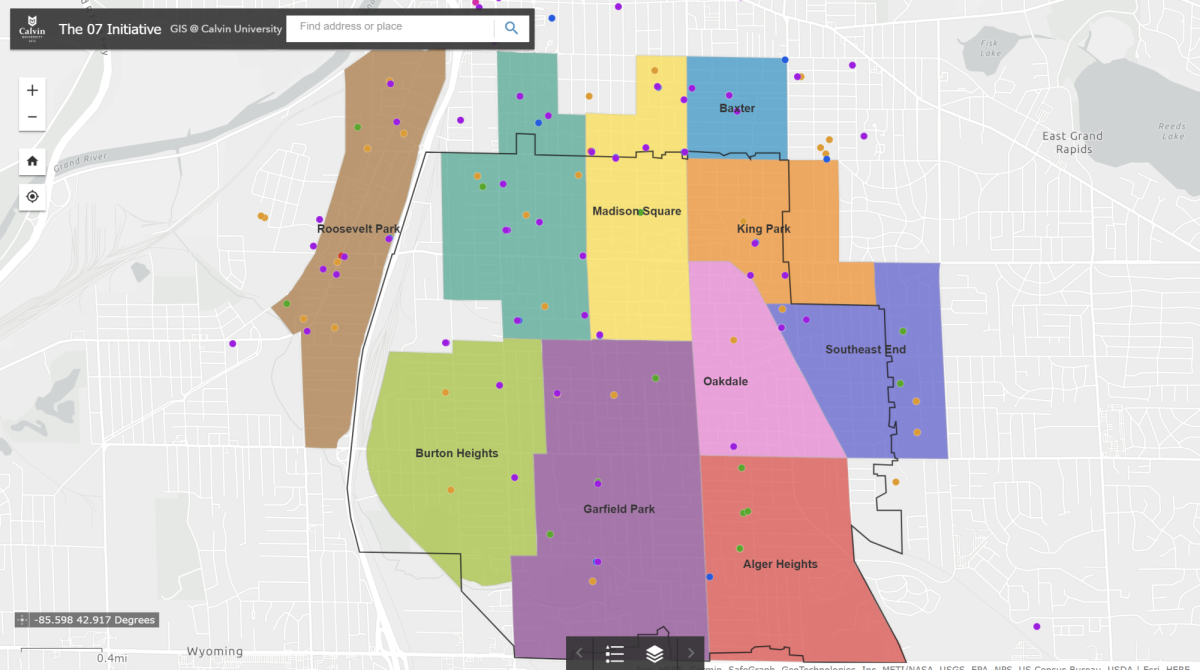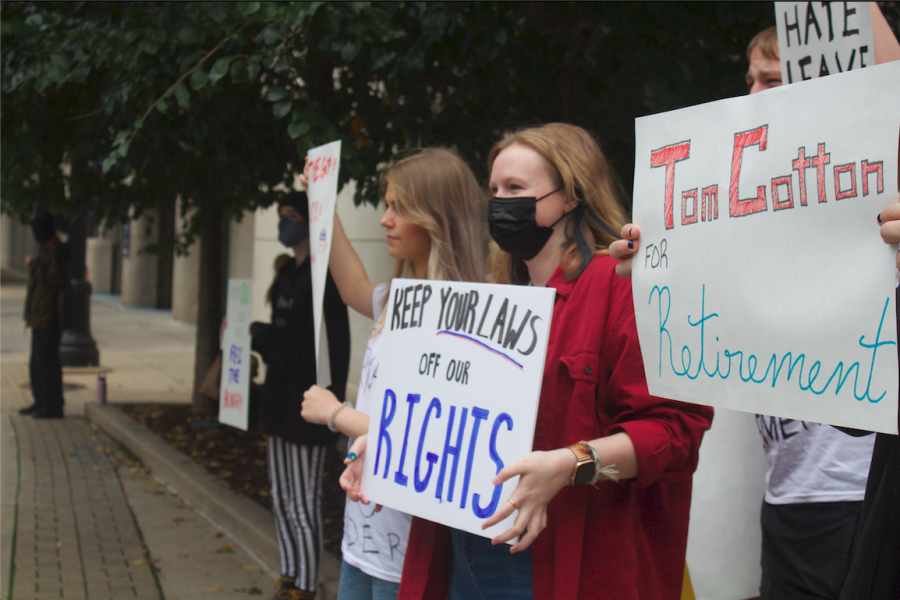First-year students won’t need any introduction to the phrase “listening to the stories of the neighborhoods.” Listening to the stories of the neighborhoods was the theme Streetfest coordinator Beth Sherman ’17 chose to structure Calvin’s mid-orientation day of service-learning around.
Students from the 48 Quest groups were sent out to 63 different community partners with the aim of both learning and serving in a community. The renewed focus on the educational aspect of service is a result of Sherman’s vision for Streetfest.
The local news section, in partnership with Sherman, is introducing this same theme, listening to the stories of the neighborhoods, in the form of a series of neighborhood profiles. The section will highlight one neighborhood each week, using listening as the primary motivation behind each piece.
This week, however, we begin by listening to Beth Sherman herself.
Chimes: How did the theme “listening to the stories of the neighborhood” come about?
Sherman: The theme really came out of my experience with Streetfest. I didn’t really understand service-learning at all when I came to Streetfest. All we did was a walking tour, and I was really confused why that was considered service-learning and why that was important. Looking back on that experience, I can see that we need to learn about a place and know it before we try to help, because if we don’t know about a place, what we end up doing can be really harmful. I knew a lot of first-year students were going to be thinking the same way I thought when I was in their shoes, so my goal was really to meet them where they’re coming from, meet them where they are, and have them think about why it’s important then to listen to people and learn about places.
Chimes: So how did that theme come through in the day itself?
Sherman: Breakout sessions happen before Streetfest to kind of get them ready for the day, so they did a little reading about their neighborhood and learning about it before they went there. [During the day] with Streetfest, we always try to encourage the community partners to do some type of educational activity. Lots of places take their groups on walking tours of the neighborhood. Community Rebuilders brought in a lot of organizations that they work with so students could learn about how multiple organizations work together in an area. Groups like Plaster Creek Stewards talked a lot about watersheds and how your place impacts where you live, what water you use, the impact on the land itself and on communities downstream.
Chimes: What feedback did you receive about the theme?
Sherman: This year it was really interesting to see how the theme shapes the feedback. In past years, we’ll get feedback like, “I don’t understand why we are doing all this education, isn’t this about service?” But this year I heard things like, “I wish we had more chances to hear from people and hear their stories.” It was exciting for me to hear that people actually wanted to hear from people, their stories. They didn’t just want to be somewhere weeding (which is important), but they also wanted to connect with the people, which was really exciting to hear.
Sherman will continue to work for the service-learning center this year as an academically-based service coordinator, working with the education department to bring service-learning into classrooms.









